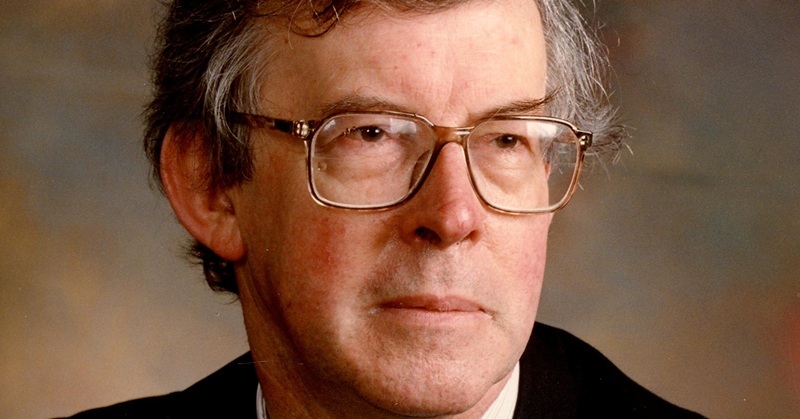A Fife lecturer widely known as a world authority in international relations and a leading expert in terrorism and political violence has died.
Professor Emeritus Paul Wilkinson, who came to St Andrews University in 1989 to take up the first chair in International Relations, passed away at the age of 74, the university confirmed on Friday.
Co-founder of the university’s Centre for the Study of Terrorism and Political Violence, one of the most respected in its field, Mr Wilkinson not only became a familiar face around St Andrews but in living rooms around the globe as a commentator on the scourge of terrorism.
He was the sole author of 15 books on the subject and joint author of a further 10, and was a widely-quoted expert in the media in the aftermath of the 9/11 attacks in the US.
Indeed, he was still providing expert comment to media sources worldwide following last month’s atrocities in Norway.
Courted by other universities and research centres throughout his career, he chose to remain in Fife, citing his fondness for St Andrews and its people among the many reasons for staying in the area for so long.
He was a close friend of St Andrews principal and vice-chancellor Professor Louise Richardson, with whom he shared academic and research interests.Generosity”Paul was a personal friend,” she said. “He treated younger scholars in the field with unfailing generosity and courtesy.
“It is hard to imagine St Andrews without him but he has left a lasting legacy in the School of International Relations and the Centre for the Study of Terrorism and Political Violence (CSTPV).”
Mr Wilkinson, who was born in Middlesex and educated at Harrow, gained a BA in modern history and politics at University College, Swansea, followed by an MA.
After six years’ service as a regular Royal Air Force officer, he started his academic career in 1966 at the University of Wales, Cardiff, before being appointed to the first chair in International Relations at Aberdeen University in 1979.
His first book on terrorism, Political Terrorism, was published in 1974.
In 1989 he was appointed to the first chair in International Relations at St Andrews University and in 1990 was made the first head of the new Department of International Relations.
During his time at St Andrews the School of International Relations experienced a huge expansion in staff and student numbers and he is credited with playing a significant role in this.
Throughout his career Mr Wilkinson was a strong opponent of terrorism of all kinds.
In his publications and media contributions he consistently argued that the democratic response to both domestic and international terrorism should always be guided by the rule of law.
He publicly opposed attempts to increase the period permitted to detain terrorism suspects without trial in the UK and condemned the Guantanamo project and other measures by President Bush’s administration which departed from basic rule of law principles.
After retiring from his position as chairman of the advisory board for the CSTPV in August 2007, he was appointed Emeritus Professor of International Relations.
In 2009 Mr Wilkinson was awarded the CBE in the New Year’s Honours in recognition of distinguished public service.
While nominally retired, he remained indefatigable in recent years, speaking to the media and policy-makers, organising and attending conferences, engaging with the CSTPV, continuing to teach and write.
At the time of his death he was working on a new book due to be published next year.
Shortly before his retiral, Mr Wilkinson spoke of what motivated him.Scourge”Obviously terrorism is a major threat to human rights, peace and security and it is therefore very important to try to understand the phenomenon and to seek more effective ways of preventing and mitigating this modern scourge,” he said.
“Terrorism is a particularly grim research subject but it is also very challenging, complex and ever-changing.
“One of the most stimulating aspects of my early research was that I was one of a small band of pioneers in this almost totally neglected field.
“I have also enjoyed the multi-disciplinary challenges of terrorism studies, the foreign travel that has been essential to carry out my work and, best of all, meeting and engaging in dialogues with a growing network of academic specialists, policy-makers, legislators, lawyers and other professionals involved in the tasks of studying, and attempting to prevent and combat terrorism around the globe.”
In his spare time Mr Wilkinson enjoyed walking in and around Crail, where he lived, modern painting and poetry.
He is survived by his wife Sue, whom he married in 1960, their three children Rachel, John and Charles, and many grandchildren.
First Minister Alex Salmond said he was deeply saddened to hear of Mr Wilkinson’s death.
Mr Salmond, a St Andrews graduate, said, “Professor Wilkinson made an enormous contribution to our understanding of the modern world and the terrorist threat.
“His was always a voice of reason, even when commenting on the most extreme events, and he brought great wisdom and learning to his areas of specialism.
“My thoughts are with Professor Wilkinson’s wife and family and hope that they can take some comfort from the high esteem in which he is held by former students, fellow academics and decision-makers at home and abroad.”
